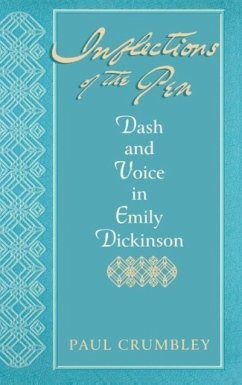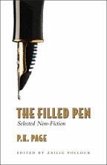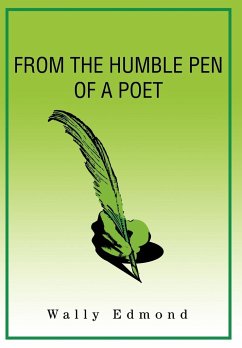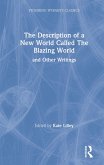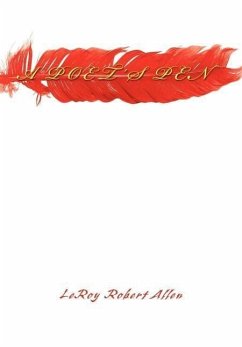Emily Dickinson's life and art have fascinated--and perplexed--the poet's admirers for more than a century. One of the most hotly debated elements of Dickinson's poetry has been her unconventional use of punctuation. Now, in Inflections of the Pen: Dash and Voice in Emily Dickinson. Paul Crumbley unravels many of these stylistic mysteries in his careful examination of manuscript versions of her poems--including selections from the fascicles, Dickinson's own handbound gatherings of her poems--and of Dickinson's letters. Crumbley argues that the dash is the key to deciphering the poet's complex experiments with poetic voice. From the time of Dickinson's first editors, Mable Loomis Todd and Thomas Wentworth Higginson, standard versions of her poetry have tended to normalize the poems. Designated as either em- or en-dashes in print by all but a few recent editors, Dickinson's dash marks in the holograph versions vary tremendously in length, height, and angle. According to Crumbley, these varied dashes suggest subtle gradations of inflection and syntactic disjunction. The printed poems give the impression of a unified voice, whereas the dashes that appear in the manuscript disrupt conventional thought patterns and suggest multiple voices. The dash, therefore, becomes Dickinson's most expressive visual signal. Crumbley believes that Dickinson's unorthodox practice grants her readers the right to question linguistic authority. No one voice seems to have primacy in Dickinson's poetry. Instead, the poems provoke multiple readings that simultaneously affirm and challenge the dominant social and political values of nineteenth-century America.
Hinweis: Dieser Artikel kann nur an eine deutsche Lieferadresse ausgeliefert werden.
Hinweis: Dieser Artikel kann nur an eine deutsche Lieferadresse ausgeliefert werden.

